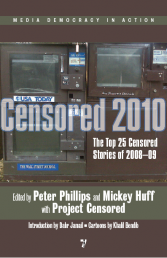Posts Tagged ‘economy’
|
by Felicity Arbuthnot
|
|
 |
|
|
Global Research, April 26, 2008
|
|
When the State of Israel declared independence on the 14th May 1948, her founding vow was to:
“… uphold the full social and political equality of all its citizens without distinction of religion, race, or sex; (to) guarantee freedom of religion, conscience, education, and culture; will safeguard the holy places of all religions; and will loyally uphold the principles of the United Nations Charter. . . .” Israel called: “upon the Arab inhabitants of the State of Israel to preserve the ways of peace and play their part in the development of the State on the basis of full and equal citizenship and due representation in all its bodies and institutions.”
Israel is about to celebrate sixty years of human rights violations against the region, Palestinians and destruction of their ever diminishing lands, revelling, in effect on graves, ancient bulldozed groves and over half a century of decimation of dreams, homes, heritage. The travesty of the theocracy’s founding on the above untruth, its betrayal, from the State’s inception, is encapsulated in the story of one child, caught in the early displacement of nearly three quarter of a million souls from the land of their birth. A forced flight and fragmentation of families, friends, communities, unceasing over six grinding decades.
The child was six years old in 1948. One night, that year, Israeli soldiers came to his home in al-Barweh. The family “…fled through a forest, bullets winging overhead and reached Lebanon, where they stayed for more than a year, living on meagre United Nations hand outs”. Finally, the child was led by his uncle, back across the border to the village of Deir al-Asad, in Galilee. They could not return to al-Barweh, for it had been obliterated by Israeli soldiers.
“All that had happened”, he recounted in 1969, “was that the refugee had exchanged his old address for a new one. I had been a refugee in Lebanon and now I was a refugee in my own country.”
Further, the first Israeli census deemed any Palestinian not accounted for as “an infiltrator” and “therefore not entitled to an identity card”. The child had been in Lebanon during the census and was, thus, illegal in his own country. His family and the Headmaster of his primary school used to hide him when police or officials appeared. Eventually, officials were told that he had been with the nomadic Bedouin during the census, thus finally obtaining an identity card, legalising him in the land of his birth.
From early on, literature and poetry were his passion. Whilst still at primary school, he was asked by his Headmaster to take part in Deir al-Asad’s celebration of the anniversary of the founding of the State of Israel. “I stood before a microphone for the first time in my life and read a poem, which was an outcry from an Arab boy, to a Jewish one.”
He still remembers the theme of his verses: “You can play in the sun as you please … but I can’t. You have a house and I have none. You have celebrations, but I have none. Why can’t we play together?”
The following day, the boy was summoned by the military governor who insulted and threatened him, concluding that: “If you go on writing such poetry, I’ll stop your father working in the quarry.” The child wept bitter tears. “He was the first Jew I met and talked to … If that was how Jews were, why should I speak to a Jewish boy?” He was saved from “the fire of distrust” by a Jewish woman teacher, who was “like a mother” and symbol of all that was good. She broadened his knowledge of poetry, refused to teach a curriculum “devised to distort and discredit our cultural heritage. She demolished the walls of distrust erected by the military governor.” (1)
The boy was Mahmud Darwish, probably the world’s best known Palestinian poet, recipient of the 1969 Lotus Prize and 1983 Lenin Peace Prize. Palestine’s plight is reflected in the gentle, insightful screams of his haunting words, each poem a requiem to a land, history and people, raped by initial edicts from Whitehall and a world that has turned its face away from a “beloved country”, dismembered, piece by piece. To compare the lush richness of Palestine from the 1948 map and that of now, is to compare the vibrancy of beauty, become force-starved and mutilated, yet still fighting for precious life and future.
The contrast of Darwish’s poignant lines with the obscene language of those who have risen to the highest political offices in Israel, is stark: “We go to a country not of our flesh. The chestnut trees are not of our bones …. “We go to a country that does not hang a special sun over us …”
Another poem begins: “We travel like other people, but we return to nowhere …”
Another: “The earth is closing in on us, pushing us through the last passage …. “We saw the faces of those who’ll throw our children Out of the windows of this last space …”
And his near unbearable: “Give birth to me again that I may know in which land I will die, In which land I will come to life again …”
The lexicon, from which the leaders of Israel have pronounced over the years, must have come from the proverbial parallel universe. Israel’s first Prime Minister, David Ben Gurion, opined of the Palestinians, as five hundred villages were being destroyed in sort of national house warming ceremony, unfettered violence raging: “The old will die off and the young will forget.”
Yitzhak Rabin, on the ethnic cleansing of residents of Gaza said: “Israel will create in the course of the next ten or twenty years, conditions which would attract natural and voluntary migration of the refugees from the Gaza….”
“The Palestinians are beasts walking on two legs….. Eretz Israel will be restored to the people of Israel. All of it. And for ever.” stated Menachem Begin, only to be outdone by Yitzhak Shamir: The Palestinians: “… would be crushed like grasshoppers … heads smashed against the boulders and walls.” Ehud Barak weighed in with: “Palestinians are like crocodiles, the more you give them meat, they want more….”
George W. Bush’s “man of peace”, Ariel Sharon, lynchpin of the 1982 Lebanon Sabra and Shatila massacres, voicing his action plan stated: “Everybody has to move, run and grab as many (Palestinian) hilltops as they can, to enlarge the (Jewish) settlements because everything we take now will stay… Everything we don’t grab will go to them.”
Raphael Eitan, founder of the right wing Tzomet Party and clearly a soul mate of Sharon, stated: “When we have settled the land, all the Arabs will be able to do about it will be to scurry around like drugged cockroaches in a bottle.” (2)
This Zionist wickedness, also mirrored in high places in Washington and Whitehall, also targets and denigrates the Jewish Diaspora in Israel and worldwide, who have devoted their lives – and often endangered or lost their careers – in their commitment to not alone a land, but a region where all can live in harmony, side by side. The vitriol, to which they are subjected by their own, includes being called “self hating Jews”. Even Orwell would be hard put to equate a passion for peace and “loving thy neighbour”, with “self hate”.
Whilst the United Nations Security Council threatens, has threatened and imposes embargoes against some of the world’s poorest countries, for actual or perceived violations, breaches or non-compliance with Resolutions, Israel: “…enjoys a unique relationship with the United Nations. Despite its failure to comply with a host of UN Resolutions, no action is ever taken”, writes Geoff Simons, in his exhaustive study of the world body. (3) Simons lists a few Resolutions which have been casually tossed aside by the Middle East’s “only democracy”: SCRs: 242, 338, 465, 672, 673 and 681.
The “important” Resolution 681 of 20th December 1990: “Deplores the decision by the government of Israel … to resume the deportation of Palestinian civilians …” Israel responded shortly afterwards by further deportations.
Resolution 799 of 14th December 1992, was unanimous and also, uniquely, supported by the US and UK. It denounced Israel’s further violation of International L aw, noting that: “In contravention of its obligations under the Fourth Geneva Convention … deported on 17th December, hundreds of Palestinians ….” Further: “Strongly condemns the action … Reaffirms the applicability of the Fourth Geneva Convention to all the territories occupied by Israel … Reaffirms also the independent sovereignty and territorial integrity of Lebanon … Demands that Israel as the occupying Power, ensure the safe and immediate return to the occupied territories of all those deported …”
The then Secretary-General, Boutros Boutros Ghali expressed his “grave concern” over Israel’s action. The UK Foreign Office temporarily developed the semblance of a spine and declared that Israel was in violation of International Law – and one diplomat predicted the outcome: “… Israel hears the UN Resolution and then does what it does anyway.”
The refugees had been dumped in a wilderness in the early hours of the freezing winter morning. Israel turned a deaf ear to the UN and Western nations stood by. Palestinians demonstrated in sympathy in the Gaza Strip, Israeli troops opened fire, killing a ten year old girl and five others. By July 1993, Israel was back in Lebanon, decimating the tiny country, by land, sea and air.
Lebanon has been revisited and redecimated again (with beautiful little Israeli children shown, on military bases, signing missiles, which were to drop on Lebanese children). Palestine’s “long day’s journey into night” continues, year after year, as does the world’s silence.
Iraq lies in ruins for telling the truth to the United Nations (and the near five year assault on and plight of another Muslim nation, Afghanistan, barely flickers on the UN., or international radar.)
As the marking of the seven hundred and twentieth month of Israel’s betrayal of her vow to loyally uphold “the principles of the United Nations” is nearly upon the world, recent breaches include the killing of fifty nine Palestinians, including fifteen children and injuries to one hundred and five others in Gaza during April and three hundred and forty in just the fifteen weeks of 2008. http://www.uruknet.de/?p=m43336&hd=&size=1&l=e
Uruknet provides a litany of misery, taken from numerous sources; just three examples:
The planned closure and take-over of several orphanages and boarding schools sheltering thousands of orphans and impoverished students. Many of the orphans’ parents had been killed by the Israeli army and paramilitary Jewish terrorists, also known as “settlers”… http://www.uruknet.de/?p=m43382&hd=&size=1&l=e
The on-off halt of UNRWA relief operations in the Gaza because of lack of fuel supplies necessary to operate its trucks and centers deployed all over the Strip …John Ging, the UNRWA’s director of operations in Gaza, stated Wednesday that the magnitude of death, destruction and despair in the Strip is considerable and disgraceful …. http://www.uruknet.de/?p=m43342&hd=&size=1&l=e
The finding of the mutilated body of 15 year old Hammad Nidar Khadatbh in lands of the illegal Israeli settlement of Al-Hamra by his father. Hammad had left the house on Tuesday, 15th April to work on the family’s land … Hammadi’s body was naked, bloated, and tortured. His neck was broken, and his face had been smashed in with rocks. One finger had been cut off and there were multiple holes in his torso … An Israeli police officer who arrived on the scene to investigate the incident confirmed that Hammad had been murdered … http://www.uruknet.de/?p=m43343&hd=&size=1&l=e
On Tuesday, 22nd April, IMEMC’s Saed Bannoura reported: “A shipment of food aid for the people of the Gaza Strip was denied entry by Israeli military forces on Monday…. The World Health Organization has estimated malnutrition rates among children in Gaza may be as high as 45% due to the Israeli-imposed siege. Israeli politicians have openly declared that they plan to ‘choke’ and ‘starve’ Gaza into giving up resistance to the Israeli military occupation of their land.” Yitzhak Rabin’s words in minimally different guise.
AP reported (25th April 2008) that: “The United States, Britain, France and other members walked out of a closed meeting of the UN Security Council late Wednesday after Libya compared the situation in Gaza to Nazi concentration camps in World War II.” Israel’s Deputy Defence Minister, Matan Vilnai of course, last month, declared a holocaust for the people of Gaza. Libya clearly has no confusion over the use of lexicons.
Trauma surgeon, David Halpin responded to the BBC’s Today programme (25th April) on which Israel’s spokesman Mark Regev attempted to defend the indefensible. Halpin wrote: “The suffering of the 1.4 million people in Gaza, two thirds of whom are refugees and thus classified as persons due special protection, is beyond description and counting.”
In 1982, famed Syrian-born poet Adonis (Ali Ahmad Said) wrote of the siege of Beirut : “You do not die because you are created or because you have a body You die because you are the face of the future …” And of: “being bombarded with darkness”.
As Israel celebrates by bombarding with darkness, the lights of humanity are going out, lost with their voice mute in those who walked from and closed the door on, the truth at the United Nations.
Britain’s also struck dumb, pantomime “Middle East Peace Envoy”, Anthony Lynton Blair QC., is, of course, lost in transit. Perhaps he’ll be unearthed somewhere in the uncountable thousands of missing bags at Heathrow’s infamous Terminal Five and dusted down just in time to join Friends of Israel’s birthday bash.’
Notes
(1) Darwish’s background and selected poems, with the evocative works of Sami al-Qasim and Adonis (Ali Ahmed Said) the all, soul songs of the Middle East, from: Victims of a Map, Saqi Books.
http://www.amazon.com/Victims-Map-Adonis/dp/0863565247
(2) Paradise: Lost, Professor Jamil I. Toubbeh, Palestine Chronicle, 22nd April 2008.
(3) The United Nations – A Chronology of Conflict, Geoff Simons, Macmillan, 1994.
Please also see:
http://www.hanini.org/Al-Nakbagallery.html Nakba May 1948 with pictures to cry for.
Felicity Arbuthnot is a journalist and activist who has visited the Arab and Muslim world on numerous occasions. She has written and broadcast on Iraq, her coverage of which was nominated for several awards. She was also senior researcher for John Pilger’s award-winning documentary, “Paying the Price: Killing the Children of Iraq” and author, with Nikki van der Gaag, of “Baghdad” in the “Great Cities” series, for World Almanac Books (2006.)
Please also see:
United Nations Information System on the Question of Palestine
http://domino.un.org/UNISPAL.NSF?OpenDatabase
The Ghosts of Deir Yassin
http://www.uruknet.de/?p=m43426&hd=&size=1&l=e
Why Palestinian Unity is Not an Option
http://www.palestinechronicle.com/view_article_details.php?id=13739
Love and resistance in the Gaza Strip Mona el-Farra, Guardian http://www.guardianweekly.co.uk/?page=editorial&id=567&catID=3
Gaza is on the verge of bread crisis http://www.uruknet.de/?p=m43435&hd=&size=1&l=e
In Gaza: No shoe nor a drop of fuel http://www.uruknet.de/?p=m43421&hd=&size=1&l=e
Head of Catholic Church: Gaza will not die of hunger http://www.uruknet.de/?p=m43419&hd=&size=1&l=e
Video: Blockade halts food aid to Gaza Michael Bailey: 70,000 Gazans have no drinking water; UN can’t feed 700,000 refugees http://www.uruknet.de/?p=m43404&hd=&size=1&l=e
Dutch journalist deported from Israeli airport http://www.uruknet.info/?p=43325
Felicity Arbuthnot: Adopt a Doctor, Adopt a Patient, Adopt a Window, Adopt a Meal http://www.unobserver.com/index.php?pagina=layout4.php&id=4687&blz=1
 economy, geopolitics, politics, life, news, bush, usa, israel, lebanon, palestina
economy, geopolitics, politics, life, news, bush, usa, israel, lebanon, palestina
Source: naomiklein.org
“When I finished The Shock Doctrine, I sent it to Alfonso Cuarón because I adore his films and felt that the future he created for Children of Men was very close to the present I was seeing in disaster zones. I was hoping he would send me a quote for the book jacket and instead he pulled together this amazing team of artists — including Jonás Cuarón who directed and edited — to make The Shock Doctrine short film. It was one of those blessed projects where everything felt fated.” – Naomi Klein
Watch the short film in Spanish. Quicktime high resolution or Quicktime medium resolution.
See the short film in Italian. Windows or Quicktime: High resolution or Medium resolution.
Read an interview between Naomi Klein, Alfonso Cuarón and Jonás Cuarón about the making of The Shock Doctrine short film.
Read the list of fast facts, shocks and their aftermath from The Shock Doctrine Short Film.
.
Naomi Klein – The Shock Doctrine
Part 1 of 6
Part 2 of 6
Part 3 of 6
Part 4 of 6
Part 5 of 6
Part 6 of 6
 naomi-klein, conspiracies, economy, corporation, politics, news, life, environment, manipulation, disinformation
naomi-klein, conspiracies, economy, corporation, politics, news, life, environment, manipulation, disinformation
—–

Capping a relentless rise in recent years, oil prices hit a record high during the day on Monday, then pulled back to close below the record.
The day’s highest trading price, $103.95 a barrel on the New York Mercantile Exchange, broke the record set in April 1980 during the second oil shock. That price, $39.50 a barrel, equals $103.76 today, when adjusted for inflation.
The surge in energy prices is taking place as investors seek refuge in commodities to offset a slowing economy and a declining dollar. Analysts pointed out that financial institutions like pension funds and hedge funds are also buying oil and other commodities like gold as hedges against a rise in inflation.
That trend is expected to continue, especially after Ben S. Bernanke, the chairman of the Federal Reserve, signaled last week that he was ready to cut interest rates further to bolster economic growth, despite rising consumer prices.
“When investors lose confidence in the central bank, they tend to look for hard assets,” said Philip K. Verleger, an economist and oil expert. “The Fed’s capitulation on inflation is driving investors to commodities.”
For example, Calpers, the California Public Employees’ Retirement System, the largest United States pension fund, said last week that it might increase its commodities investments sixteenfold to $7.2 billion through 2010, to benefit from an across-the-board surge in commodities like gold, silver, oil and wheat.
The latest catalyst for the spike in energy prices has been the recent fall in the value of the dollar, analysts said. Currency traders are selling dollars and buying euros to take advantage of the difference in interest rates between the United States and Europe.
After steep declines last week, the dollar dropped to a record $1.5274 against the euro on Monday before recovering somewhat. It also fell to its lowest level in three years against the Japanese yen.
Like many commodities, oil is priced in dollars on the international market. A falling dollar tends to buoy oil prices in part because consumers using stronger currencies, like the euro or yen, can afford to pay more per barrel.
“The question for oil is, Where is the dollar going?” said Roger Diwan, a managing director at PFC Energy, a consulting firm in Washington. “That’s going to be the main market mover in the short term.”
Since 2000, oil prices have more than quadrupled as strong growth in demand from the United States and Asia outstripped the ability of oil producers to increase their output.
The rising prices of the past decade failed to dent global economic growth as consumers absorbed the higher costs. Even now, with the United States economy slowing markedly, the trend has not slowed much. Global oil consumption is still expected to increase by 1.4 million barrels a day this year, driven by demand in China and the Middle East.
Still, today’s market climate is markedly different from the energy crises of the 1970s and 1980s. These were brought about by sudden interruptions in oil supplies, like the 1973 Arab oil embargo, the Iranian revolution of 1979 or the outbreak of the war between Iran and Iraq in 1980.
Also, the United States’ economy was once much more dependent on oil than it is today. The amount of oil needed to increase economic output by $1 has dropped by 25 percent since 1990.
In the early 1980s, energy accounted for about 8 percent of disposable income in American households. As the economy became less energy-intensive and prices declined, that share fell to under 4 percent in the early 1990s.
But as prices keep rising, the share of energy spending has been increasing. It reached more than 6 percent of household disposable income in December.
Other energy futures also rallied on Monday. Gasoline and heating oil futures both jumped to records. Natural gas prices, which are up 24 percent since the beginning of the year, closed unchanged at $9.346 per thousand cubic feet.
After hitting $103.95 in New York trading on Monday morning, crude oil pulled back to close at $102.45. In London, Brent crude oil futures rose 38 cents, to $100.48 a barrel.
Gold also reached a record after several days of large gains; it traded on Monday at $989.54 an ounce.
With oil setting fresh records, many analysts expect gasoline to approach $4 a gallon on average this summer. Gasoline prices have been rising sharply in recent days and have hit $3.16 a gallon on average, according to AAA, the automobile club. They are closing in on last year’s record of $3.23 a gallon.
There is evidence that these high prices are finally causing consumers to cut consumption.
According to the latest government figures, released Monday by the Energy Department, gasoline demand fell by 1 percent in December 2007 from the previous year. Oil demand was nearly flat last year as well.
Gasoline accounts for about half of the total oil used in the United States, which consumes one in four barrels of oil produced worldwide each day. Most experts say the price of oil is not about to drop anytime soon. Saudi Arabia’s oil minister, Ali al-Naimi, said crude prices were unlikely to fall below $60 a barrel because the cost of developing new supplies, from sources like Canadian tar sands, is rising.
“Therefore, a line has been drawn below which the price cannot fall,” Mr. Naimi said in an interview published over the weekend by Petrostrategies, an industry newsletter in Paris.
Mr. Naimi’s comments came as the OPEC oil cartel prepares to meet on Wednesday. It is expected to leave its production levels unchanged.
The oil producing group suggested last month that it might curb production soon to make up for a seasonal decline in oil demand. But with oil prices at current levels, analysts said members of the Organization of the Petroleum Exporting Countries would find it politically difficult to curb their output now.
Some analysts expect oil producers to trim their production informally to avert an oil surplus in coming weeks. Others say OPEC, which controls 40 percent of the world’s oil exports, is being pulled apart by contradictory pressures.
“The market around the fringes is starting to fray,” said Lawrence J. Goldstein, an economist at the Energy Policy Research Foundation. “Yet ironically, you are looking at triple-digit oil prices because the price is being set by nonphysical investors.”
NYT Source: Oil Tops Inflation-Adjusted Record Set in 1980
Read our related articles about oil:



 E-mail Subscribe
E-mail Subscribe


































